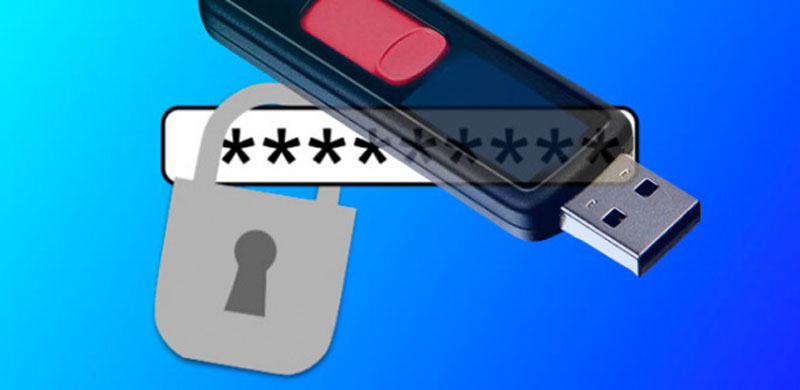
Index:
UPDATED ✅ Identity theft is when someone pretends to be someone else to obtain personal benefits ⭐ ENTER HERE ⭐ Learn how to avoid it
As Internet users, it is convenient for all of us to pay close attention to security measures when we browse. This is because problems such as identity fraud, where a subject pretends to be another person in order to be able to carry out any type of criminal actincluding making any type of purchase or attempting an attack.
This modality is applied more and more by cybercriminals, who take advantage of it to carry out different types of transactions in the name of another person, since this can be done motivated by there are apps that do not provide the necessary security. In this post we teach you everything you need to know to stay safe from unwanted episodes.
This type of crime has been increasing nowadays, since the computer criminals They seek to take advantage of the indisputable boom in the use of the Internet and social networks.
What is identity theft and with what intention is it done?
Identity theft is one by which a third party steals your personal information in order to carry out an unlawful act, such as: the theft of money, a fraud, a purchase, among others.
It should be noted that your identity is made up of your personal data such as your name, bank account information, room address, your telephone number or any type of data that can identify you.
Criminals use this methodology in order to contract some type of service, make an expense with your credit card, perform any type of illicit act or buy things online.
What are the main risks of a person taking our identity as their own?
As has been said in the previous points, identity theft can bring with it several types of risks, which can cause countless inconveniences, among which we can achieve:
- Instability.
- Falsification of your identity.
- Create brands in the electronic space.
- Uncertainty.
- Management of minds and actions.
To avoid them, it is essential that programs are formed that provide adequate security, with the intention of creating processes that make these cases non-existent, apart from prevent the things we do from being recorded on the network and our privacy is violated, much less our personal information.
Phishing, how does identity substitution work on the Internet?
Before describing this point, it is important to tell you that “phishing” or identity theft is when a unknown person uses your data without your permission for a certain purpose.
Now, this criminal method allows criminals to steal your personal information and go beyond the limits of your security. to commit any kind of fraudslander or libel, which are the most common crimes executed by a hacker, so his type of attack can be:
- Against a public servicethis person impersonates the identity of the person who works in a certain company to ask you to indicate your personal information, and then take it to make transactions to your bank account.
- Against social pageswhere a third party sends you a message through any network with an external link, and when you click on it, your personal data is stolen.
In case you think this has happened to you, it is important that you constantly check your bank accounts and your social networks.
How can I protect myself from phishing so that no one takes my identity online?
Phishing can cause your passwords to be breached and your accounts to be fraudulently used. That is why when you enter a website it is essential that you review the URL, for that you can place the mouse over the link. Nevertheless, links are covered with fake domain names or letters by which you can enter a page that is not legitimate.
To protect our personal data when we browse the net, it is essential that:
Be careful with certain websites
There are pages that are managed by criminals with the intention of stealing information and committing fraud, which is why when entering a we must make sure that it is safe and always be attentive when they require information about our bank account, telephone number or place of residence.
Use an antivirus

A good option is that constantly scan your computer with the intention of verifying that there is no type of malware or virus.
Constantly change your passwords

The people who are dedicated to stealing information can enter your email, so you must choose a good password to prevent this from happening. It is recommended that you use multiple passwords and change them multiple times.
Be careful where you shop online

By using the Internet you can find various sites where you get many products. In the event that you like to buy online, you should be careful as information thieves can make you believe that there are problems with your account and thus scam you.
Don’t spread too much data
When registering on a page try to not provide as much information personal, since there are people who take them to commit illicit acts.
Crime of identity theft What is the penalty for a person who pretends to be another in Spain?
There are many cases where people have stolen their identity, because today this is happening constantly, so criminals create any type of profile with which violate security.
In Spain, this type of crime itself is not established in the Penal Code, but it is stipulated when marital status is supplanted, which is typified in the Article 401 of the Penal Code, which establishes that:
“Whoever impersonates the marital status of another person will be punished with a prison sentence of 6 months to 3 years”
Likewise, this type of crime is punishable by article 402which reads as follows:
“Whoever carries out any illegal act invested in the figure of a public official or authority will be punished with a prison sentence of 1 to 3 years.”
Now, this punishment seeks to protect the identity of people apart from public faith, since for it to be consummated it is essential that the identity of another person is usurped and that he or she commits some type of fraud that harms the victim.
For example, one of the crimes that is most used by these criminals is the violation of the right to one’s own image, established in the article 18 of the Spanish Constitutionwhere a third party establishes a false profile with the information that it takes from another subject, such as its name.
Likewise, it can happen that this criminal steals a password or the account of another person and accesses it, meaning that a third party gets into a profile of another subject stealing their passwords or their accounts and where they access them, reason why which must serve a sentence of 1 to 4 yearsas well as with a fine of 12 to 24 months, according to article 197 of the Penal Code.
Computing